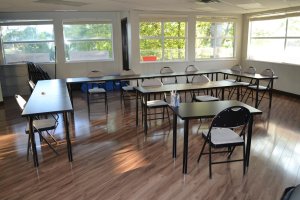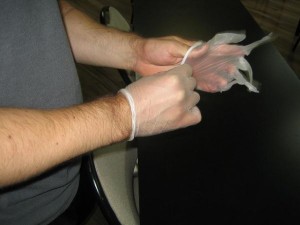
Becoming a certified CPR rescuer is easy with our providers. You just need to sign up for training and complete all of the requirements to get certified. Pre-tests are given for more complicated courses such as Advanced Life Support training but post-tests (certification tests) are given at the end of all the training programs, both Basic and Advanced Life Support.
Our providers are located in five states, over six cities. They all offer the same training programs at the same rates and fees. These cities are Los Angeles, San Francisco, Honolulu, Las Vegas, Portland, and Seattle.
Certification, period of validity, and renewal
All of the classes at Las Vegas CPR certify students as trained rescuers. Once the program or class has been completed, the trainee has to pass a certification exam consisting of a skills test and written exam to get the training certificate. The certificate is valid for a period of 24 months before it expires.
Certificates that are nearing expiration can be renewed through a re-certification class. Re-certification classes will only take certificates that are still valid, not certificates that have expired already. Out of the eight programs at our providers, only three have available re-certification classes.
- Basic Life Support for HCPs re-certification – 4 hours
- Advanced Cardiac Life Support – 5 to 6 hours
- Pediatric Advanced Life Support – 6 hours and 20 minutes / 8 hours and 20 minutes (depending on the optional stations taken)

CPR training programs
Basic Life Support training is short, lasting up to 4.5 hours. The program curriculum covers one person and two-person CPR rescue, depending on the class taken. A few basic first aid skills are also included in training, including how to use a defibrillator and the 2010 Basic Life Support guidelines from the AHA.
- Heartsaver CPR (general public) – runs for four hours; program curriculum: 1-person rescue, first aid, and AED training
- Heartsaver CPR C (healthcare providers) – runs for four and a half hours; program curriculum: same as Heartsaver CPR
- Basic Life Support for HCPs – runs for four and a half hours; program curriculum: 1-person and 2-person rescue, first aid, and AED training, 2010 BLS guidelines
Advanced Life Support training is longer, usually taking two days to complete. The program curriculum goes beyond the basics of CPR, teaching trainees how to give medical support to a victim who has already been stabilized. Medical support involves using medical equipment, giving medication, and performing diagnostics to further assess and treat the victim’s condition.
Students are required to have a Basic Life Support training certificate to qualify for any form of ALS training. There are two kinds of ALS programs, one for adult management and one for pediatric management.
- Advanced Cardiac Life Support (ACLS) – runs for 16 hours, completed over 2 days; program curriculum: medical management of adult victims, adult assessment, adult pharmacology, crash cart equipment and medication for adults
- Pediatric Advanced Life Support (PALS) – runs for 14 hours, completed over 2 days; program curriculum: pediatric medical management; pediatric assessment, pediatric pharmacology, crash cart equipment and medication for pediatric patients
